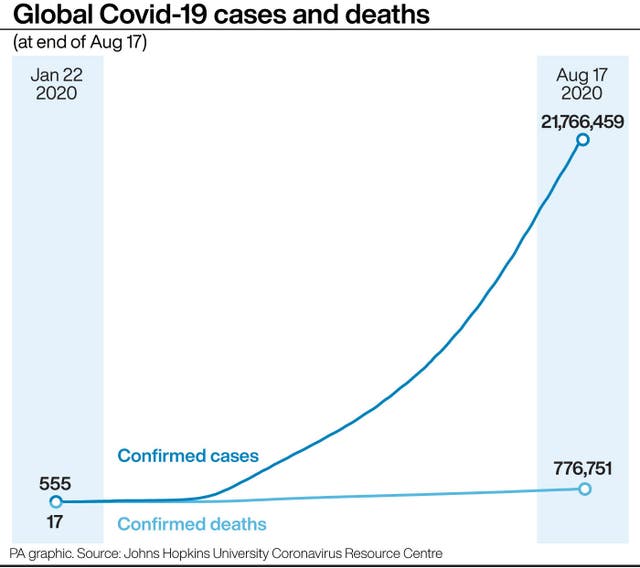South Korea tightens coronavirus restrictions amid spike in cases
The new restrictions will affect half of the population.

South Korea will ban large public gatherings and shut down churches and nightspots in the Seoul metropolitan area amid an alarming surge in infections that health officials describe as the country’s biggest crisis since the emergence of Covid-19.
In a nationally televised announcement on Tuesday, Prime Minister Chung Sye-kyun said strengthening social distancing restrictions for the area, which is home to half of the country’s 51 million people, was inevitable because a failure to slow transmissions there could result in a major outbreak nationwide.
South Korea reported 246 new cases on Tuesday, mostly from the capital area, pushing its total for the last five days to 959.
The measures, which will take effect on Wednesday in Seoul, the nearby Gyeonggi province and the city of Incheon, prohibit gatherings of more than 50 people indoors and 100 people outdoors.
Nightclubs, karaoke rooms, buffet restaurants, computer gaming cafes and other “high-risk” venues will be shut and churches will only be allowed to provide online services.
“We are at a crucial moment where a failure to put (infections in the capital area) under control would quickly develop into a major outbreak nationwide,” Mr Chung said.
The government had resisted calls to strengthen social distancing measures for months, citing concerns about hurting an already fragile economy that policymakers say could shrink for the first time in two decades.
Churches have emerged as major clusters of infections, with many of them failing to require the wearing of masks and allowing worshippers to sing in choirs or eat together.
Kwon Jun-wook, director of South Korea’s National Health Institute, said health workers have so far found 457 cases linked to a huge Seoul church led by a critic of South Korean president Moon Jae-in, which has become the main focus of disease control efforts.

Mr Jun, who was unmasked and shared a microphone with several other protest leaders on a stage during Saturday’s protest, tested positive on Monday and is now receiving treatment at a Seoul hospital.
Health officials have so far tested 2,500 of the church’s 4,000 members, but they have expressed concern that many of them are refusing to come forward for testing.
Police are pursuing some 800 church members who have been out of contact.





